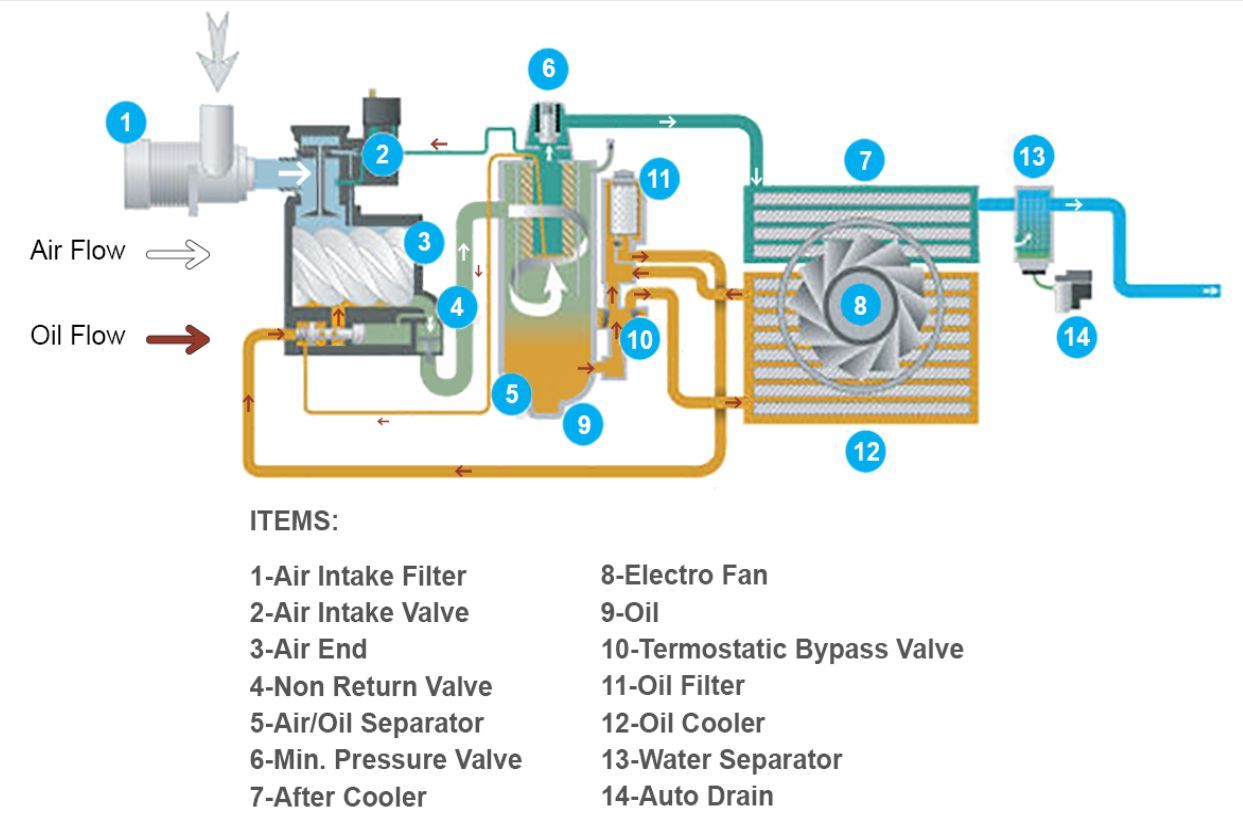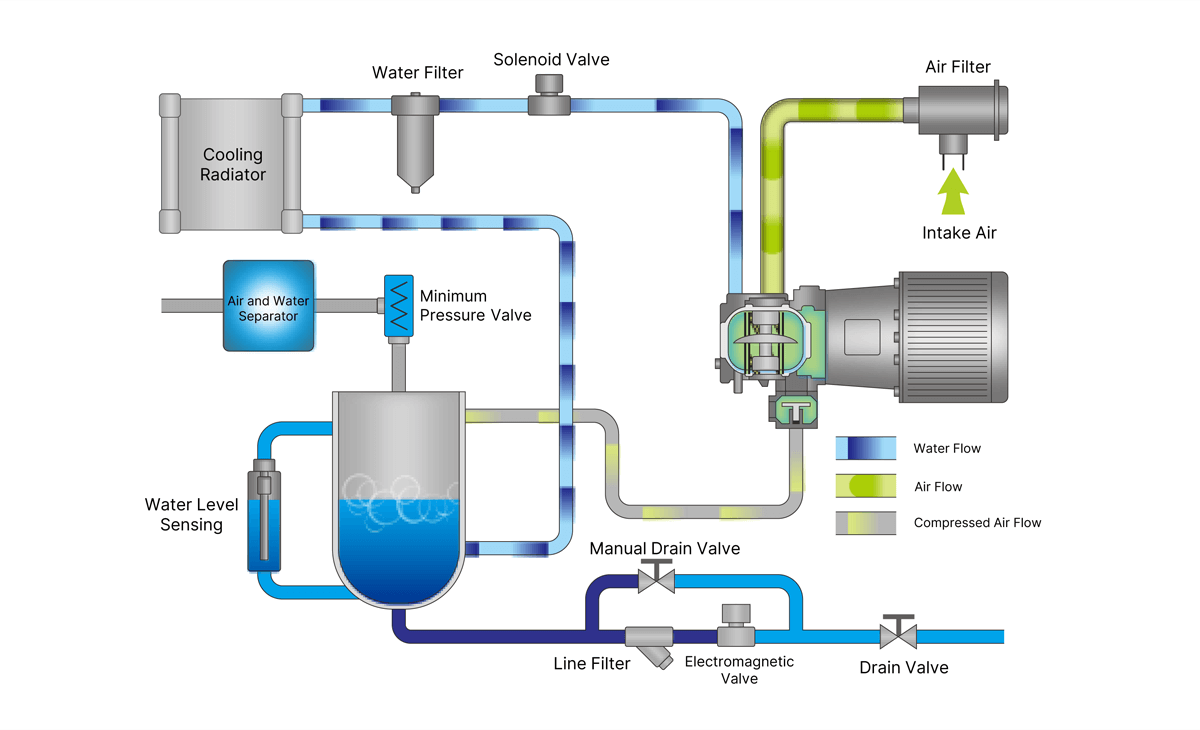Oil-Flooded vs. Oil-Free Compressors: Which is Right for You?
11/30/2024
Choosing the right industrial air compressor is a critical decision for any business. One of the most important factors to consider is the type of lubrication system: oil-flooded or oil-free. Both types have their own set of advantages and disadvantages, and understanding these differences is essential for selecting the best compressor for your specific needs and applications.
Oil-Flooded Compressors: The Workhorse
Oil-flooded compressors, also known as oil-lubricated compressors, are the most common type of industrial air compressor. They utilize oil within the compression chamber to lubricate moving parts, reduce friction, and dissipate heat. This oil circulation contributes to several key benefits:
-
Enhanced Durability: The presence of oil significantly minimizes wear and tear on internal components, such as pistons, rotors, and bearings. This leads to a longer lifespan and reduced maintenance needs over time.
-
Improved Efficiency: Oil-flooded compressors generally operate at higher efficiency levels compared to oil-free models, particularly when delivering high pressure air. This translates to lower energy consumption and reduced operating costs.
-
Quieter Operation: The lubricating oil acts as a dampener, minimizing noise generated during the compression process. This is particularly important in noise-sensitive environments.
-
Lower Upfront Cost: In most cases, oil-flooded compressors have a lower initial purchase price compared to oil-free models, making them an attractive option for budget-conscious buyers.
However, oil-flooded compressors also have some drawbacks:
-
Oil Carryover: Despite filtration systems, a small amount of oil can carry over into the compressed air stream. This can be problematic for applications where air purity is critical, such as in food processing or pharmaceutical manufacturing.
-
Regular Maintenance: These compressors require routine maintenance, including oil changes and filter replacements, to ensure optimal performance and longevity. This can result in downtime and additional maintenance expenses.
-
Environmental Considerations: The used oil from these compressors needs to be properly collected and disposed of to minimize environmental impact.
Typical Applications:
Oil-flooded compressors are widely used in industries where air purity is not a primary concern, such as:
-
General manufacturing and industrial processes
-
Construction and demolition
-
Automotive repair shops
-
The oil and gas industry



Oil-Free Compressors: Clean Air Delivered
Oil-free compressors are designed to eliminate the presence of oil in the compression chamber. This ensures the delivery of 100% oil-free compressed air, making them essential for applications where air purity is paramount.
Key Advantages:
-
Superior Air Quality: Oil-free compressors guarantee that no oil contaminants will enter the compressed air stream. This is crucial for sensitive applications where even trace amounts of oil can compromise product quality or safety.
-
Reduced Maintenance: With no oil to change, oil-free compressors require less frequent maintenance and have reduced downtime compared to their oil-flooded counterparts. This can lead to significant cost savings over time.
-
Environmentally Friendly: The absence of oil eliminates the need for oil disposal, making these compressors a more sustainable choice.
Considerations:
-
Higher Initial Cost: Oil-free compressors typically come with a higher upfront investment compared to oil-flooded models. However, this can be offset by lower maintenance costs and reduced downtime in the long run.
-
Potential for Lower Efficiency: Oil-free compressors may have slightly lower energy efficiency, especially at higher pressures. However, advancements in technology are continually improving their efficiency.
-
Increased Noise Levels: Due to the lack of oil for dampening, oil-free compressors can generate higher noise levels.
Ideal Applications:
Oil-free compressors are the preferred choice in industries with stringent air quality requirements:
-
Food and beverage processing and packaging
-
Pharmaceutical manufacturing and research
-
Medical and dental facilities
-
Electronics manufacturing and cleanrooms
-
Spray painting and powder coating
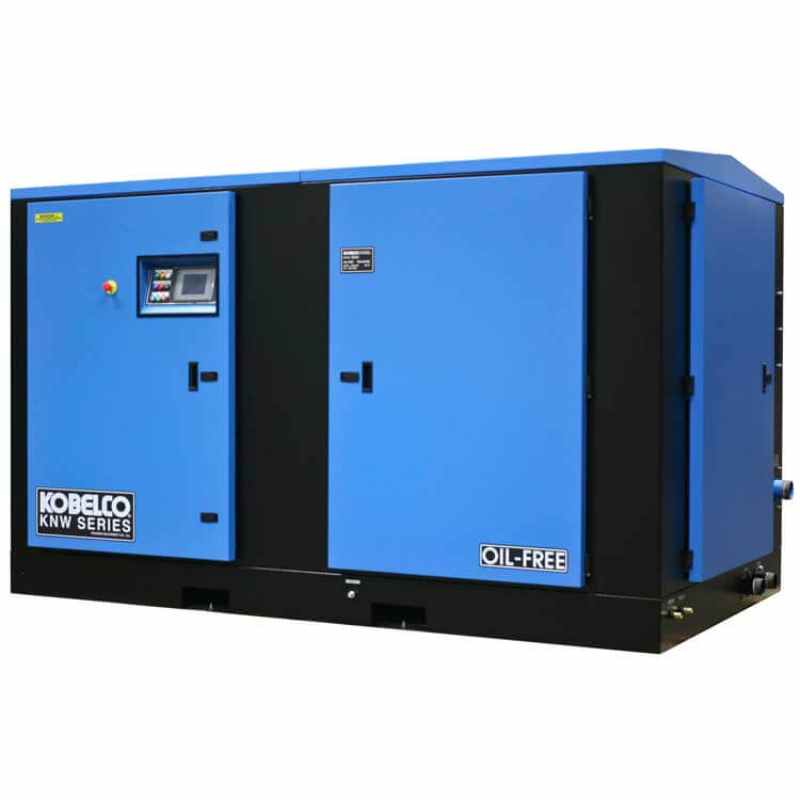
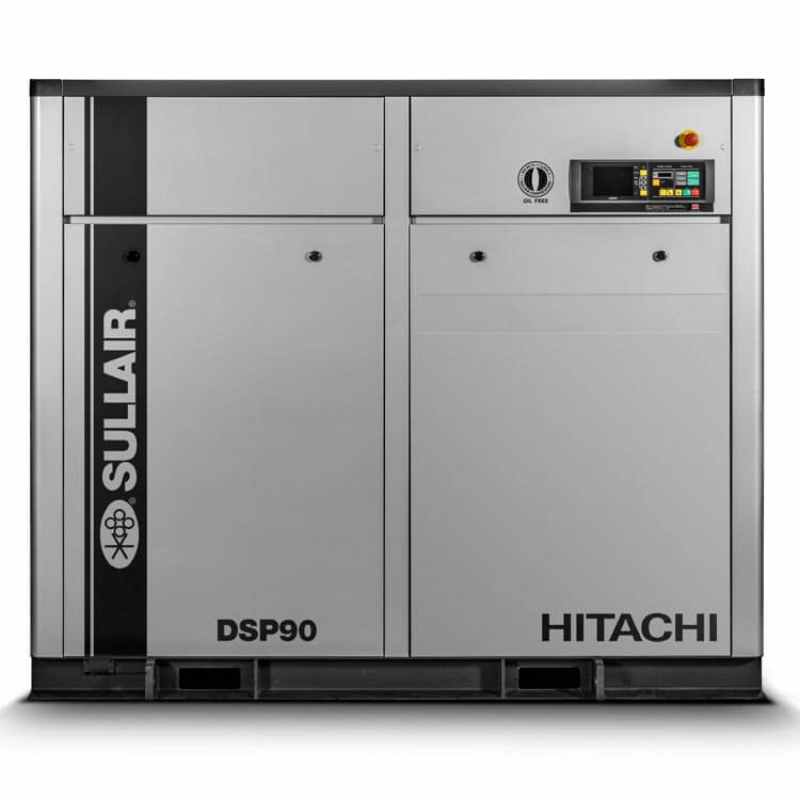
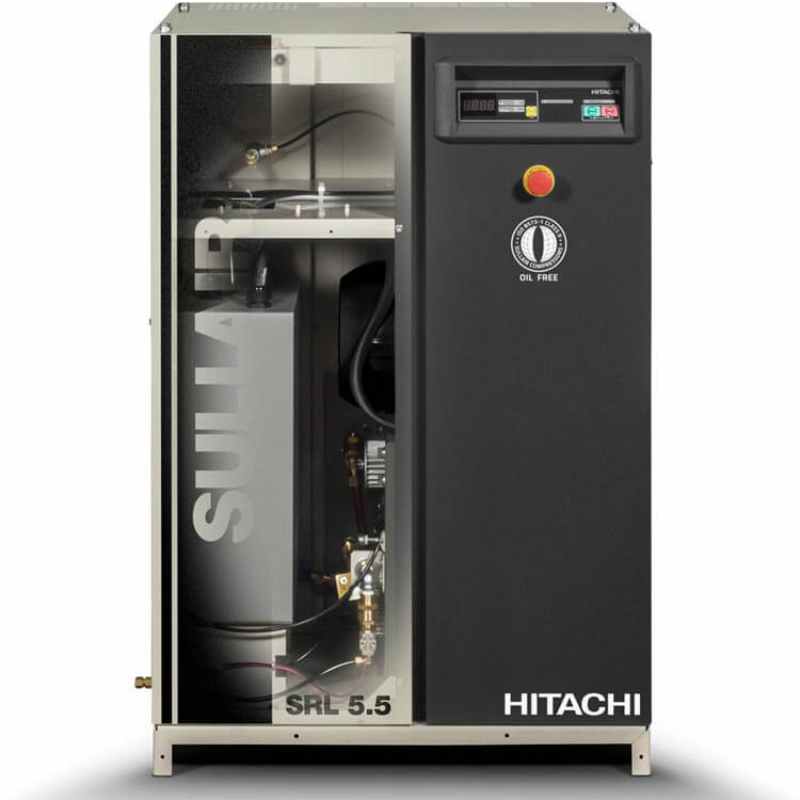
Making the Right Choice
Choosing between an oil-flooded compressor and an oil-free compressor ultimately depends on your specific needs and priorities. Carefully consider the following:
-
Air Quality Requirements: Does your application demand absolutely oil-free air?
-
Operating Budget: Factor in both the initial investment and ongoing maintenance costs.
-
Energy Efficiency: Evaluate the energy consumption of different models to minimize operating expenses.
-
Noise Sensitivity: Consider the noise level tolerance in your working environment.
-
Environmental Impact: If sustainability is a priority, an oil-free compressor may be the better choice.
Blackhawk Equipment: Your Partner in Compressed Air Solutions
Blackhawk Equipment offers a comprehensive selection of both oil-flooded and oil-free compressors from leading brands. Our team of experts can help you assess your requirements, understand the pros and cons of each type, and recommend the ideal solution for your specific application. Contact us today for a consultation and a free quote!
